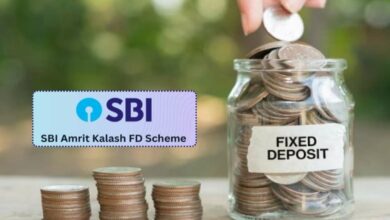National Savings Scheme: The government changed this rule of this scheme
National Savings Scheme: The post office manages a number of modest savings plans, and its regulations are often changing. Another development has surfaced recently. Interest payments on the scheme’s contributions will no longer be made. Actually, a directive pertaining to the National Savings Scheme (NSS) was issued by the federal government earlier this year. The deadline for depositors to take their money out was September 30. Additionally, it was suggested that on October 1, 2024, interest payments would cease. Stated differently, people will no longer receive interest payments from the NSS program.

Instructions for cash withdrawal
According to government guidelines, depositors who made contributions to the National Savings Scheme (NSS) 37 years ago in order to safeguard their own and future generations’ financial futures are encouraged to withdraw their full balance by September 30, 2024. because they will no longer get interest on the money they placed. Customers have also been asked to update their KYC information.
The NSC scheme is not the same as the NSS system.
Investors should not mistake it with the National Savings Certificate (NSC), which is a small savings plan. In 1992, the entirely distinct National Savings Scheme (NSS) was closed to new participants, and after that year, no one could save under it. However, the government was providing compound interest under this scheme, which was stopped on October 1, 2024. Between March 2003 and September 30, 2024, the annual NSS interest rate was 7.5%. We would want to let you know that NSC has not changed. Investors don’t need to freak out in this case.
The National Savings Scheme began when?
The National Savings Scheme (NSS) was introduced in 1987 and ran until 1992, when it was briefly revived. However, in 2002, it was eventually phased out. Even after the government shut it down, the plan kept paying interest on deposits. During the scheme’s existence, several depositors chose to close their accounts, take their assets out, and declare the money as taxable income. A number of investors have chosen to maintain their funds in an active account, and they continue to do so.
Section 80C of the Income Tax Act of 1961 permits a tax deduction on investments made by depositors up to ₹40,000 per year under the NSS. Following a four-year lock-in period, depositors were permitted to withdraw both their principle and interest. The program’s previous interest rate of 11% was subsequently lowered to 7.5% each year.
Accounts prior to October 2024
You will get interest at the rate of 7.5% per year until the end of September 2024 if you made contributions to your NSS account before to October 1, 2024.
Following October 2024, accounts
No interest will be paid on newly opened accounts or deposits after October 1, 2024. This information may affect your decision to keep investing in NSS or to look at other investment and savings options.
Tax regulations
According to official regulations, funds taken out of NSS are subject to taxes in the year they are taken out. The interest earned will, however, continue to be tax-free as long as it stays in the account if the depositor chooses not to take the money out. The whole sum will be exempt from taxes if the depositor passes away and his heirs take the money out.





